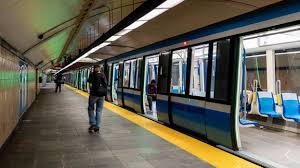Understanding the Recent Surge in Bus Cancellations

Introduction
In recent months, bus cancellations have emerged as a pressing issue affecting commuters across Canada. With public transportation being an essential service for millions, the increase in cancellations has raised concerns about accessibility, reliability, and the broader implications for urban mobility. Understanding the factors contributing to these cancellations is crucial for policymakers, transit agencies, and commuters alike.
Current Situation
Reports indicate that several transit agencies across Canada have experienced significant disruptions, leading to higher rates of bus cancellations. Issues cited include a combination of driver shortages, increased absenteeism due to health-related concerns, and challenges stemming from adverse weather conditions.
In Toronto, for example, the Toronto Transit Commission (TTC) has reported that the number of cancelled bus routes has tripled compared to previous years. Figures from the TTC show that in September alone, there were over 1,500 bus trips cancelled, a staggering increase that has left many residents frustrated and searching for alternative modes of transportation.
Impacts on Commuters
The rise in bus cancellations has profound effects on the daily lives of commuters. Many depend on public buses to get to work, school, or appointments, and cancellations lead to longer wait times and overcrowded alternatives. A survey conducted by the Canadian Urban Transit Association (CUTA) revealed that over 70% of respondents have experienced delays due to cancellations, highlighting a growing discontent regarding the reliability of public transit.
Possible Solutions
Transit authorities are aware of the pressing issue and are actively discussing potential solutions. Some agencies are introducing incentives for drivers to reduce absenteeism and attract new hires. Additionally, technology is being leveraged to improve real-time tracking of bus routes, allowing passengers to receive timely updates on expected cancellations or delays.
Moreover, some cities are exploring partnerships with rideshare companies to provide supplemental transportation options during peak cancellation times, thereby ensuring residents have access to reliable transit solutions.
Conclusion
As Canada continues to adapt to post-pandemic challenges, the issue of bus cancellations stands out as both a symptom and a stressor for urban transportation networks. Addressing these challenges is imperative not only for the convenience of everyday commuters but also for the overall effectiveness and sustainability of public transit systems in Canadian cities. With the right strategies and community support, it is possible to mitigate these disruptions and enhance the reliability of public transportation for all Canadians.









